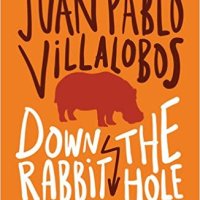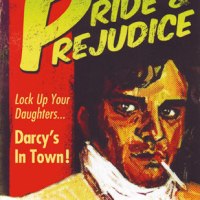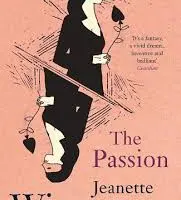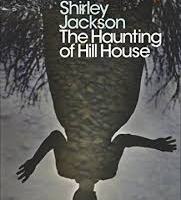Everything Passes, a novel, by Gabriel Josipovici
When I finished Gabriel Josipovici’s book What Ever Happened to Modernism? I wasn’t quite sure what to read next. I looked at the shelves and pulled off a Beckett, Josipovici’s Everything Passes, a Huysmans and JL Carr’s A Month in the Country.
I took a look at the opening page of Josipovici’s novel to see how his critical theory manifested in practice. I’d already pretty much decided to read something else first. Here’s the opening two paragraphs. the entirety of the first page:
A room.
He stands at the window.
And a voice says: Everything passes. The
good and the bad. The joy and the sorrow.
Everything passes.A room.
He stands at the window.
Silence
He stands.
Silence.
I’d read What Ever so I had some idea what was going on, what questions to ask. What room? Who is he? What voice is this? His? An internal one? Is someone else present? Is it the author’s voice? God’s? There is no evident answer. Still, it was easy to read. I read on.
Before I knew it I was around 2o pages in. The whole book is only 60. I figured I should stop as it was very late, but I was 30 pages in before I did and only then because I was too tired to continue. It’s hard to capture it from such small quotes as those above, but Josipovici can write. I found myself turning the pages as if it were a thriller.
As the book continues it becomes apparent that it is not written in chronological order. The paragraphs may be the man’s memories and thoughts as he gazes out that unidentified window (is it always the same window?). They may not be. Still, as the words slide past a sort of story began to emerge. I began to get a picture of the man’s life, forming from the fragments before me.
When I reviewed Berger’s A Painter of Our Time I spoke of it as being a cubist novel. That’s what’s happening here too (though the style is very different). Through fragments of perspective one sees the whole life, but no part of that life is given priority over any other.
Here’s another quote which should illustrate what I mean:
His face at the window.
Greyness. Silence.
The crack in the pane.
His face at the window.
Silence.Sunlight.
The garden.
The shuttlecock flies into the bushes.
– I can’t! she says. I can’t play any more!
– You want to stop?
– I want to lie down, she says. I’m sweating all
over. I want to lie down with you in the grass.
Who is she? Where is this garden? At the time I read that I didn’t know. By the end of the book I had a pretty good idea. On its own it makes little sense, in the context of the whole work though it comes together and why this incident matters becomes apparent.
In What Ever Happened to Modernism? Josipovici made a number of arguments about what modernism is and what it’s a response to. I discussed that there, so won’t here, but the arguments are present here too. They’re present though in vastly condensed form, and are perhaps better for that.
– Rabelais, he says, is the first author in history to find the idea of authority ridiculous.
She looks at him over her coffee cup. –
Ridiculous? She says.
– Of course, he says. For one thing he no
longer felt he belonged to any tradition that
could support or guide him. He could admire
Virgil and Homer, but what had they to do with
him? Homer was the bard of the community. He
sang about the past and made it present to those
who listened. Virgil, to the satisfaction of the
Emperor Augustus, made himself the bard of the
new Roman Empire. He wove its myths about
the past together in heart-stopping verse and so
gave legitimacy to the colonisation and
subjugation of a large part of the peninsula. But
Rabelais? If enough people bought his books he
could make a living out of writing. But he was
the spokesman of no one but himself. And that
meant that his role was inherently absurd. No
one had called him. Not God. Not the Muses.
Not the monarch. Not the local community. He
was alone in his room, scribbling away, and then
these scribbles were transformed into print and
read by thousands of people whom he’d never
set eyes on and who had never set eyes on him,
people in all walks of life, reading him in the
solitude of their rooms.
– Do you want another coffee? she asks.
– Yes please.
That’s an extraordinarily didactic passage. So much so that on first reading it I was rather troubled by what then seemed to me a blatant (and rather clumsy) authorial intrusion into the text. I normally avoid ascribing character views to authors, but here I’ve read the author’s theories on the same point and I know this is his view. He really is inserting himself into the text.
It’s not that simple though, because it’s also the character’s view. Josipovici has used his character to present his thesis, but it soon becomes apparent that the character himself actually is didactic within the fiction, perhaps even a bully.
– The trouble with most works of literature, he
says, is that they face you head on. It’s never like
that in real life. Things just slip past us and
we’re hardly aware of them before they’ve gone.
You know what I mean?
– Your food, Felix, Sally says.
– Can I finish what I was saying?
She is silent.
– Damn, he says. I’ve lost the thread.
They eat.
As the novel continues it becomes increasingly questionable what use this truth of the character’s is. Even if he’s right, so what? What good does it do him? He criticises the art, the writing, of others which he sees as pandering to the market but he struggles to write himself and there’s no evidence that he’s correct when he accuses another writer of not being true to his own voice. That writer replies that what he writes is his own voice. Who’s to say he’s wrong?
Worse yet, it’s not even clear that reality can live up to the rigor of the character’s views on the relationship between art and the world. At one point someone tells him that they are in love:
-In love? he says. Do you think you’re in a
film or something?
Josipovici set out his thesis, but his own text undermines it. His character proposes, but his life seems to negate that proposal. This is plainly not accidental.
Josipovici subtitles his book “a novel”. It’s sixty pages long, and as you can see from the quotes those aren’t pages packed with text. What then does he mean by making that assertion? For me it said that this is a novel because it contains a life. It contains all that needs to be said, and leaves nothing unsaid that needed to be said. I’ve used the novella category in making this post because at 60 pages it fits neatly into that category on my blog, but that doesn’t detract from the point the subtitle makes.
In writing this I’ve had to avoid discussing what’s actually happening. A huge part of the pleasure of this book is putting it together. Who is she? Are all the she’s the same she? What are the events of this man’s life? What leads him to the window, if that’s a destination at all?
When I finished Everything Changes I took a breath, turned back to the first page and started again. I never really do that. I found it though an absolute blast of fresh air and I found myself wanting to see what I’d missed, to puzzle out more of what Josipovici was doing. On finishing a second time I seriously considered reading it a third. I’m sure I shall read it again at some point.
In the comments to my What Ever review Caroline asked if Josipovici does what he preaches. Having read Everything Passes I can firmly say yes, he does. In this book Josipovici addresses themes as diverse as love, a parent’s relationship with their children, life versus art, illness, death, and the value of truth. That’s big stuff for 60 pages. Enough for a novel.
I found online this review at ReadySteadyBook which I thought rather good. I would caution though that from my perspective it does contain slight spoilers and I think it would be better read after reading the book rather than before. It’s very good on the structure of the novel, which is critical and which even so I’ve not addressed. It’s difficult to discuss that structure without discussing content, which is why I made that choice. That same decision means there’s a lot of symbolism in the novel I can’t really discuss, but I can say it’s fun discovering it.














Hello
In French, the word “novella” doesn’t exist. So this would be a novel.
Have you ever read Marguerite Duras ? I don’t mean The Lover or The Sea Wall but Moderato Cantabile, The Ravishing of Lol V Stein, Love.
Here’s a quote from Love, published in 1971 (my translation, sorry)
“He stops, he looks around.
Suddenly he sees the hall.
All around him, the hall.
He looks at it.
His eyes shine. The obscurity is almost complete. He looks around as in bright daylight. Thoroughly.
He moves.
He walks to the balcony, turns around, stares. Walks back again. Walks again before the traveler sitted in the dark, doesn’t see him anymore, sees only the hall.”
It sounds like something you may like.
Reading the quotes, the word “experimental” comes to mind. Any thoughts on that?
I love that you do it justice without disclosing anything about it. I wish you were my neighbour so I could inveigle you to let me borrow it right now.
Sounds well worth a look Max. I haven’t had a chance to comment on the interesting “modernism” thread yet but I’m sold on this thanks to your review.
Pingback: Everything Passes | Conversational Reading
Emma. I’ve not read Duras. GJ actually discusses one of her books and I have a note at the moment to learn more about her so your comment is incredibly timely. I get the feeling very little of her work has been translated sadly. Would you suggest looking for Love first?
Guy, I definitely know what you mean. It’s a funny term. Johnson’s The Unfortunates was written over forrty years ago, Burroughs was doing cut up nearly sixty years ago, so can this really be experimental? That said, if experimental describes a style of novel (and that’s how many of us, including me, often use it) then yes I think it does fit.
Dictionary of the Khazars is the only book I’ve come across in years which seemed genuinely to play with form, but even that could be more reflective of my ignorance of certain techniques than genuine innovation in that book. I think at this point experimenting with the form of the novel is actually pretty hard as it’s difficult to think of much that hasn’t been tried.
It’s not experimental in the sense of difficult to read. It’s a very easy read, as I found to the cost of my sleep. It is though experimental in the sense that it doesn’t follow conventional rules of structure.
miette, you can almost certainly get it with free delivery anywhere in the world from thebookdepository.com. Failing that, should you by chance live in North London I’ll happily lend it to you.
I try really hard to avoid spoilers, because I dislike being on the receiving end. That meant here just not talking about some of the book’s more interesting aspects, which is a shame but hard to avoid without spoilers. Where it was really hard was with A Dance to the Music of Time. Discussing, for example, book ten without including spoilers for books one to nine takes an awful lot of work. That was not easy.
Leroy, it’s definitely worth trying. Also, vulgar as the point may be it’s very short so if you hate it at least you’re not hating it for 500 pages. I still remember Julian Rathbone’s Joseph which I read for well over 400 pages before deciding that I couldn’t bear another paragraph. Or Baudolino, which bluntly would have been a better novel at half the length.
For me, books by Duras are divided into two groups:
– one group based on her personal life with a more classic structure (The Lover, The Sea Wall, The War: a memoir). Guy recently reviewed the Sea Wall, I’ll read it soon. Don’t read The Lover first, I liked it but it has mixed reviews. The War: a memoir is fabulous.
– the other group would include her Nouveau Roman novels. I think the most famous ones are Moderato Cantabile, The Ravishing of Lol V Stein and The Little Horses of Tarquinia. I didn’t like these ones, I found them difficult. But I had my Duras period in high school, perhaps I was too young to catch the full meaning of her texts and the beauty of her style.
Max,
I read EP a few months back, and on first read i was 50/50. It seemed a bit Pinter/Beckett, nothing much new. But something compelled me to read it again. The 2nd time I felt much as in your review. It really does create a story with such seemingly simple means, I had a strong picture of the house, the characters, even though there is barely any description (i think one of them has a beard or a mustache).
As for any particular comments (it’s funny how you can’t really say anything about such a short book without spoilers) i thought that the comments about Rabelais reflected the main characters isolation. Maybe, maybe not.
I haven’t read Whatever ….. but I’m certainly intrigued now.
I see you have Visitation on the “just bought” list: I picked it up as well last week. Fatale is just brilliant – maybe Manchette’s best.
Max, hello. I read your review of _EP_ and _WEHM_ with great interest. Nicely done. You may be curious to read my own review of _EP_ at:
Click to access ABR_EP-GJreview-dub.pdf
As to your remarks on experimental works, the first novelist, whoever that might be (Steven Moore’s _The Novel_ offers many possible candidates), was an experimental writer. So maybe we could drop that word. I find Josipovici is, simply, a writer going his own way. But just recently I read something in Curtis White’s _Monstrous Possibility_ that got me thinking further about some potential differences between what Josipovici writes, in his fiction and non-fiction, and what he sees around him in england:
“For the confrontation between realism and ‘experimentalism’ is not only a narrow, provincial, literary dispute, it is also part of a broader ideological battle between not necessarily but factually combative epistemologies. Realism has become a State Fiction, a part of the machinery of the political state. It is through the conventions of Realism that the State explains to its citizens the relationship between themselves and Nature, economics, politics, and their own sexuality… What postmodernism has done and continues to do is oppose any totalizing fiction of life, that which, in Calvino’s words, seeks ‘to confirm and consecrate the established order of things.'” (Curtis White, _Monstrous Possibility_ p. 17)
White’s (via Calvino) ‘established order’ is the authority attacked in _WEHM_, or so it seems to me.
White’s book (and his other non-fiction titles) are much more aggressive than Josipovici’s _WEHM_, yet hardly set off the same reaction, despite his named targets. Not sure why that would be so.
Thanks again for your posts. They’re thought-provoking, and clearly call up responses.
Jeff Bursey,
author of
_Verbatim: A Novel_ (another damned ‘experimental’ novel)
Apologies for being offline. Work’s killing me at the moment.
Emma, thanks for the Duras comments. As I noted, they’re very timely.
Laurence, yes, I had a very strong picture of it all even though there’s very little to have a strong picture of. An interesting effect. I agree with you on the Rabelais point, though I think it serves multiple purposes.
Leroy, both will probably fall into August. Manchette’s best? That’s something to look forward to then. I’m reading Carr’s A Month in the Country now and after that I’ll be on holiday for a bit and taking my kindle, so it’ll probably be more crime and sf while I’m on that as it tends to be strongest on the more commercial titles.
JB, thank you and thank you for the link. I’m printing off your review to read on the way home tonight.
That White quote is spot on. That definitely feels to me like the right territory. It’s in part an assertion of possibility. There is no default. No tradition has of itself authority. That being so realism, naturalism, this is simply another choice which can be made.
That doesn’t invalidate that choice. Toibin justifies it with every novel. It does mean though that it is a choice, not how it should be.
From the quote I’d guess that White is less accessible than Josipovici tried to be with What Ever. Newspaper critics have a job to do and it’s not one that typically rewards depth. They may read a short book which promises an Amis bashing at the end (though more likely they’ll discuss it without reading it going on most of the reviews I saw), they’re unlikely to read an academic argument with no easy hook to hang an article off though.
I’d be no different in their position, so none of that is particularly a criticism.
Interesting comment. Thanks.
I’m late in commenting but I posted a comment on this a week ago and it disappeared. I hate it when that happens. It made me tired, now I’m back.
I like the sound of this a lot although I must agree with Emma, it does not sound new at all, very Duras indeed.
I started What Ever Happened to Modernism and also posted a first impression. I’m glad he writes what he preaches but I do believe he is stuck somewhere in the past. Is this the future of literature he wishes for, that writers repeat the same way of writing over and over? This type of writing is very dated. Still, I would like to read this.
JB’s review is very good. Well worth reading if anyone hasn’t.
Josipovici is a Duras fan so the link may well not be accidental. I think the future he wishes for is that each writer finds their own voice. He thinks, I think, that right now we’re seeing writers repeating the same way of writing over and over in the dominance of naturalism.
Sorry your comment vanished. That is always particularly irritating.
Thanks for that compliment, Max. It’s appreciated.
regards,
Jeff Bursey
Pingback: 2011: That was the year that was | Pechorin’s Journal